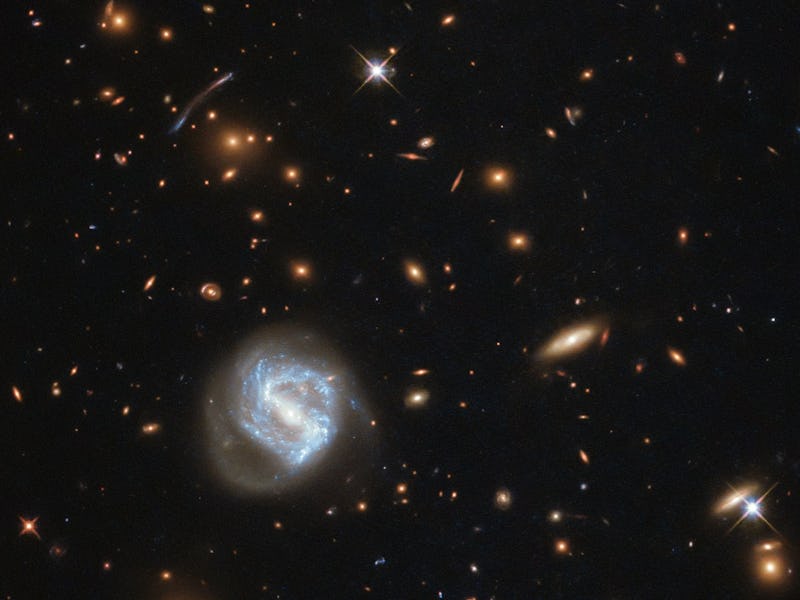Astronomers Use This Trick to Gaze Millions of Light Years Into Space

Space is unimaginably expansive,, and it just keeps growing. This makes it incredibly hard for astronomers to see what kind of black magic tomfoolery is going down millions of light years away from Earth, even with modern-day telescopes. But scientists have figured out a way to use gravity as an intergalactic magnifying glass.
Two studies published April 2 in the journal Nature describe how these two groups of researchers were able to observe objects that were once impossible to spot. The technique used in these papers is known as gravitational lensing. It uses warps in spacetime created by objects with massive gravitational forces, like groups of galaxies, to increase the magnification of telescopes. This is a major step towards making the great unknown a little more, well, known.
Join our private Dope Space Pics group on Facebook for more strange wonder.
Light from a distant galaxy cluster captured using gravitational lensing.
The image seen above is an example of scientists from the European Space Agency and NASA putting this trick into action. Directly above that vibrantly glowing spiral, you’ll see what appears to be an elongated arc. This cosmic curve is actually the light from a distant galaxy cluster known as SDSS J0333+0651. This image was taken as a part of a study of star formation in far-flung galaxies, another area of research that gravitational lensing could greatly benefit.
According to an ESA and NASA press release, many star-forming regions of space span roughly a few hundred light-years at most. This might seem massive, but trying to spot that area of space from another thousand light-years away it will seem infinitesimal.
Now that astronomers can look even further into space, they can begin to understand the formative processes of the early universe. This will hopefully turn all of the aforementioned black magic going on up there into cycles we can observe, study, and perhaps predict in the future.